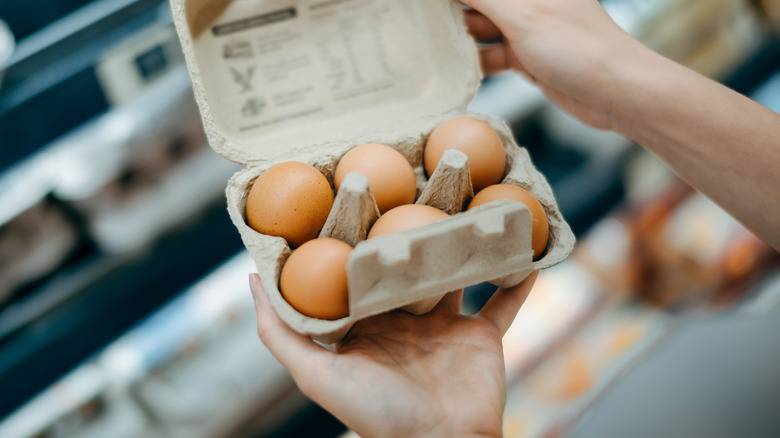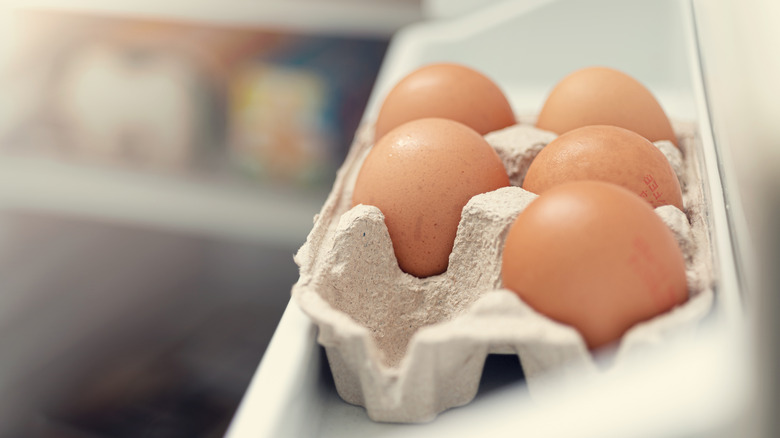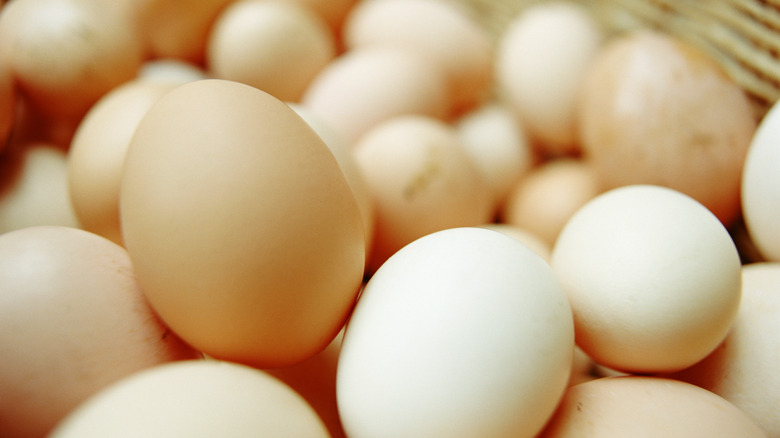Never Wash Eggs You Bought From The Store. Here's Why
We are conditioned to wash the food that we eat before we cook it. But there are some times when that rule doesn't make as much sense as it might seem. One great example of this is raw chicken. For years, people assumed it was good practice to wash raw chicken before cooking it, but the USDA now advises against that. Doing so can increase the risk of cross-contamination if bacteria end up on kitchen surfaces and other ingredients.
A similar reasoning holds true for washing eggs. It's easy to think a bit too much about where an egg came from and be eager to wash its shell before putting it in the fridge or adding it to meal prep. However, according to the USDA and food scientists, it is not only unnecessary to wash eggs from the grocery store, it's also inadvisable and potentially dangerous to do so.
Why you shouldn't wash store-bought eggs
To be graded and sold at the grocery store, eggs must meet the USDA's standards. This means they are washed and sanitized using approved compounds and at specific temperatures before reaching a store's shelves, much less your refrigerator. All you need to do is store them and use them, with no washing required.
In fact, according to the USDA, washing your eggs at home can increase the risk of contamination and potential illness. That might seem counterintuitive, given that the USDA also requires that eggs be washed before being sold to you. If you do wash your eggs at home, however, water — potentially contaminated with cleaning chemicals and other bacteria — may enter the pores of the eggshell and travel into the egg.
It is worth noting that this guidance is only true in the United States. Other countries have different regulations, and in several places, eggs are specifically not washed before being sold. This is because when an egg is laid it has a protective membrane around it, called the bloom. This natural barrier prevents bacteria (notably, salmonella) from entering the egg. The fact that this barrier is not removed by a commercial washing process in those countries also allows people to safely store their eggs at room temperature rather than in the refrigerator.
Should you wash farm fresh eggs?
Of course, this guidance is relevant for eggs bought from the grocery store. But what if you're collecting eggs from your own chicken coop, or you're buying them from a roadside stand or farmer's market? You may not be sure what practices have been kept to maintain their cleanliness. In those cases, the advice is a little different.
If eggs are coming directly from a chicken without being processed in a USDA-approved manner, then they will likely have contaminants on their shells from the coop in which they are laid. However, they will also still have the protective bloom intact (the membrane mentioned before). That means that not only do they not need to be refrigerated — as is the case for eggs in other countries — but they also don't need to be washed until right before you are going to use them. And if you don't plan to store them in the fridge for a while, simply keep them unwashed until you do.


